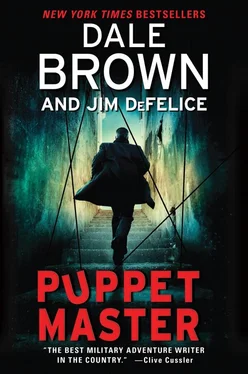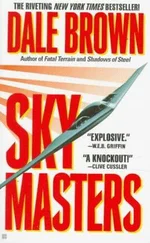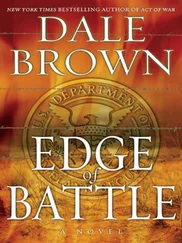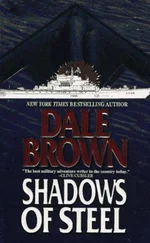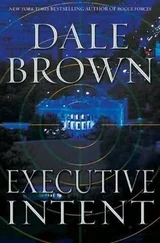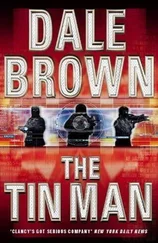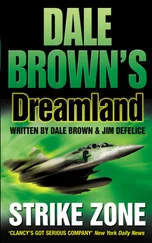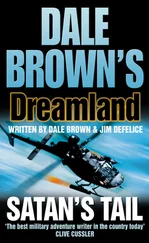Tolevi exchanged scowls with the steward and left the aircraft, eyes straight ahead as he walked up the jetway. Even before the takeover, flights were routinely monitored by the Russian intelligence agency known by its initials as SVR RF, and Tolevi had no doubt that his arrival was noted by several other intelligence agencies as well. Hiding in plain sight was his only option, and one he was supremely good at; while he had access to phony passports and other IDs, he had left them home for this trip. It was generally safer to do so.
Besides, one could find things of that nature in any country of the world.
Tolevi made his way through the terminal to the taxi stand, where a chaotic jumble of private cars and a few older vans crowded out the two licensed taxis that were trying to reach the queue. Tolevi cut to the back of the mélange, knowing from experience that the easiest way to leave the airport was to find a private car that was just arriving; using Ukrainian, he told the driver in a small, slightly battered Fiat that he was going to Perov, a suburb a few miles south of the airport. The man suggested a price in rubles.
“Fifty euro,” answered Tolevi, switching to English and not only bumping the price in the man’s favor but offering a currency far surer and more valuable.
It was also a test of sorts, which the driver passed, agreeing in broken English to provide “best service quick trip.”
“I don’t care about the speed,” said Tolevi in Russian.
“Da,” said the man. “Yes. We go.” He didn’t pronounce the words well; clearly it was a second language.
Another test passed.
Tolevi settled back in his seat, observing the man and the car. When they were outside the confines of the airport, Tolevi leaned forward and told the man, in Ukrainian, that he had changed his mind and wanted to go instead to Yalta, on the southern coast.
“Yalta,” said the man, feigning surprise, but not very well.
“For two hundred euro,” said Tolevi.
The driver considered the offer, then began a long harangue about how difficult it would be for him to find gasoline for the trip back. Tolevi let him talk, uninterrupted.
“What do you think?” asked the man finally. “Three?”
“Two hundred,” said Tolevi. Two hundred euro was an excellent price, and the man should have no problem finding fuel in Yalta.
“Yes, OK, good price,” said the driver.
Yalta was roughly an hour and a half away. The first half of the drive was a slog through the mountains. Tolevi’s fatigue was no match for the driver’s recklessness, the small car spending so much time on the left-hand side of the road that Tolevi began to think the man had learned to drive in England. The second half of the journey paralleled the coast and was considerably calmer, but by then Tolevi was not only wide awake but also brooding on what he would do in Yalta.
He had the driver take him directly to the Embankment, Yalta’s fashionable tourist strip on the harbor. After paying the man off, Tolevi went directly into Tak, a popular restaurant that had catered to wealthy Ukrainians from the west and north before “liberation.”
The hostess looked first at the bag he was wheeling behind him, then at his jeans, which were fairly new, his sport coat, which was not, and lastly at his face. The puzzled frown she’d worn exploded into a smile; with a burst of laughter she came out from behind the small podium and embraced him.
“Cousin, cousin, what are you doing here?” she said, practically shouting.
“I needed a rest.” He hugged her for a long moment, then gently pushed her back. “Anna, you are gaining weight.”
“What? What?” She twirled around, as if looking in a mirror.
“No, I’m teasing.” It was an old joke between them. Anna weighed ninety pounds, if that. Standing at five-eight without heels, she looked like a toothpick.
“Where is Drovok?” he asked.
“Where is he ever? In the back, as always. Did he know you were coming and didn’t tell?”
“No. It’s a surprise for him as well. Sshh now, don’t ruin it.”
Tolevi left his suitcase near the register and went through the restaurant to the kitchen, wending his way past the prep station and the stoves to the alcove at the back, where Jorge Drovok was hunched over a small table. He had two laptops open, and a Microsoft Surface; he clutched a satellite phone to his ear. Tolevi started to tiptoe, but Drovok looked up at the last moment, ruining the surprise.
“Gabe!”
Drovok jumped up to embrace his cousin, then went off to fetch a bottle of vodka. They spent a few minutes catching up on various acquaintances. Then, two drinks down, they got around to business, discussing how and when they would import several shipments of this same liquor. They always spoke of vodka, though most of the shipments included other items. Smuggled caviar and pickled fish were especially lucrative when going west, but the real money came the other way — the European embargo made smuggling food into Russia and its patsy state, Crimea, a very profitable activity. Drovok got a percentage for his work arranging the boats that brought the goods ashore; lately his share had been whittled down because the payoffs were increasing. Where once every fifth or sixth official had a hand out, now it was every other.
“I can talk to my partners, but there are limits,” said Tolevi. “They keep talking about Sevastopol, going in through there.”
“The bribes there are worse. And there would be no one for you to trust.”
“I don’t take their side. I’m just saying.”
“Another vodka?”
“Just. Then I go.”
“How’s your daughter?” asked his cousin when Tolevi finished his drink.
“Good, very good.”
“I see the photos on Facebook. She looks more like her mother every day.”
“Yes.” Tolevi felt a sudden wave of emotion. He clasped his hands around his cousin quickly, then went back out into the kitchen, turning down the hall and grabbing a dark workman’s coat before exiting into the alley at the back of the building. Walking quickly, he stepped out to the street, then crossed the road and went down a block before going toward the water.
Tolevi might or might not have been followed from the restaurant; it was simply safer to assume that he was. And he didn’t want to be followed now.
The Russians and the locals were well aware of the smuggling operations, or at least that part of it involving his cousin; if they weren’t, there would have been no need for bribes. But there were other things he needed to do, and those required some measure of privacy. He achieved this in the following manner: After going down the block, he swung into an alley and doffed the workman’s coat. He hopped over a fence onto the main street and, two blocks away, entered the Embankment Hotel through the front door.
He slowed as he approached the registration desk, then veered quickly toward the restrooms in the side hall. Tolevi put his hand up to the door, but instead of pushing in, he continued to walk, as if deciding to go somewhere else. At the end of the hall he turned right into another hallway. The pool was here, as was a small gym. There were bathrooms between these two; he went into the men’s, where in the last stall he removed his clothes and put on the swimming trunks that he had taken from the work coat. He bundled his clothes, carrying them with him as he went out to the pool and then the boardwalk outside, crossing the cement to a row of lockers. He put the clothes in and carried the key in his hand to the sea on the other side of the boardwalk.
With a dash, he jumped in. Two quick strokes and he dropped the key; two more strokes and he ducked beneath the surface, holding his breath until he was behind one of the boats tied to the nearby wharf.
Читать дальше
